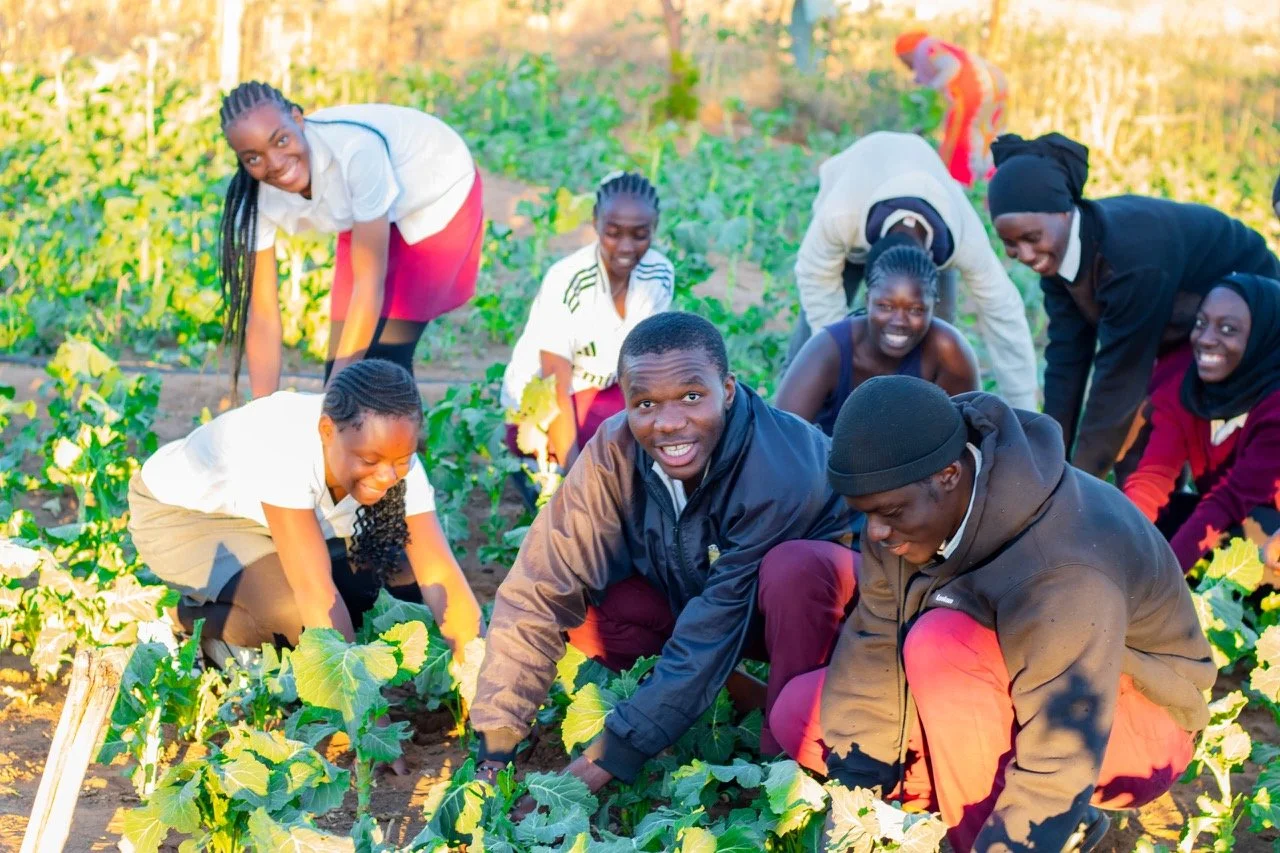
Our Impact
Create
800+ Jobs
Our Goals
Restore
50,000+ acres
Retire
250,000+ tons of CO2
What can Biochar do for a community?
The climate change emergency disproportionately affects the Global South, where populations relying directly on local agriculture for food and employmentare especially vulnerable to shifts in weather and water availability. Namibia suffers from the challenge of staggering unemployment, with rates approaching 35%.
R3 will provide dignified employment, safe housing, and family-sustaining wages for over 800 people. Our internal training program, R3U, offers hands-on education, skill certification, and clear advancement pathways. We promote from within and encourage further education beyond our program to help build long-term livelihoods.
Advancing our Sustainable Development Goals
The benefits outlined on our Biochar page—such as improved soil health, enhanced water retention, and increased fertility—are key to making rangeland in Namibia viable once again, reversing the damage caused by climate change and bush fire suppression.
Even before the biochar is applied to the soil, the positive impact begins with the removal of invasive bush. These deep taproot plants not only strip the topsoil of water and nutrients, but also drain the subsurface aquifer.
Clearing the invasive bush allows native grasslands to regenerate, which in turn helps restore the aquifer and reestablish a natural ecological balance.
Biochar production—tied to international carbon credit markets—offers a promising opportunity: creating dignified, AI-resilient jobs while actively helping to fight climate change.
Harnessing Biochar for Soil Resilience and Ecosystem Restoration
Biochar has a centuries-old legacy as a yield-improving soil amendment, but is only recently gaining broader recognition within industrialized worldwide agriculture.
In Namibia, its use and benefits are still relatively unknown. R3 sees this as an opportunity to lead—by applying biochar to our own row crops and olive orchards. Through side-by-side demonstrations of treated versus untreated fields growing maize, sorghum, wheat, onions, and paprika, we aim to showcase its tangible benefits and inspire wider adoption.
Namibia is a beautiful but often harsh and arid land. Rain is welcomed when it comes, but it may be preceded by as many as 10 months of drought. Invasive bush has dramatically altered the country’s water dynamics. With their deep taproots, these woody plants access groundwater reserves beyond the reach of grasses, outcompeting native species and reducing aquifer levels. R3 is working to reverse this by removing invasive bush and restoring native grasslands—using the opportunity of biochar not only to sequester carbon but also to regenerate the very ecosystems from which it was made.
Meet our People
Learn how our dedicated team and community efforts are driving positive change—meet the people behind our impact on the "Our People" page.






